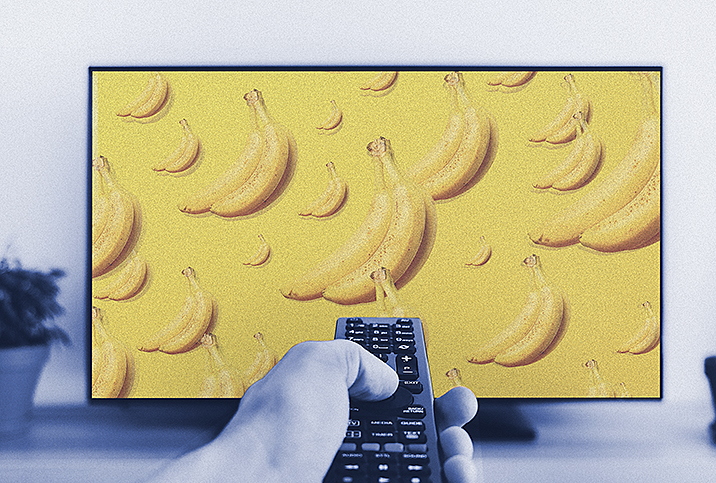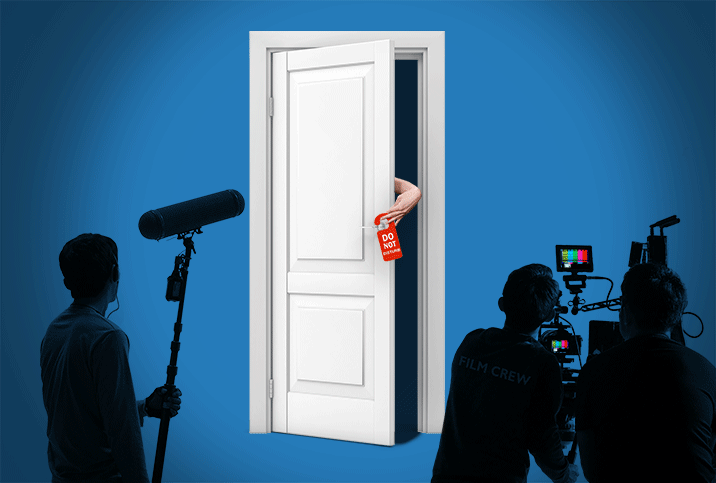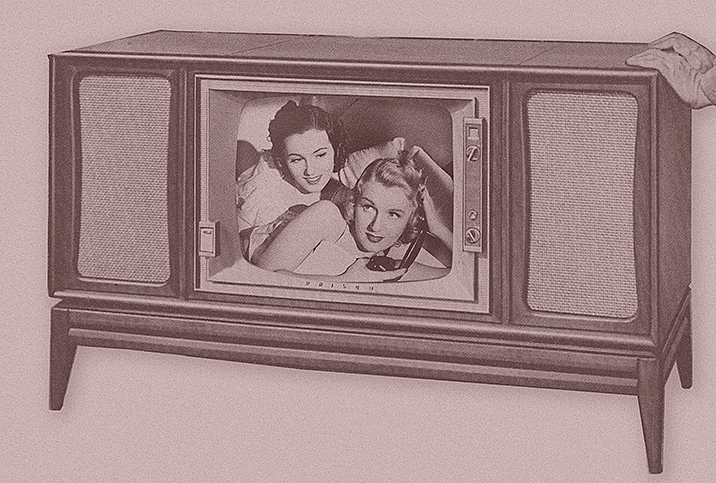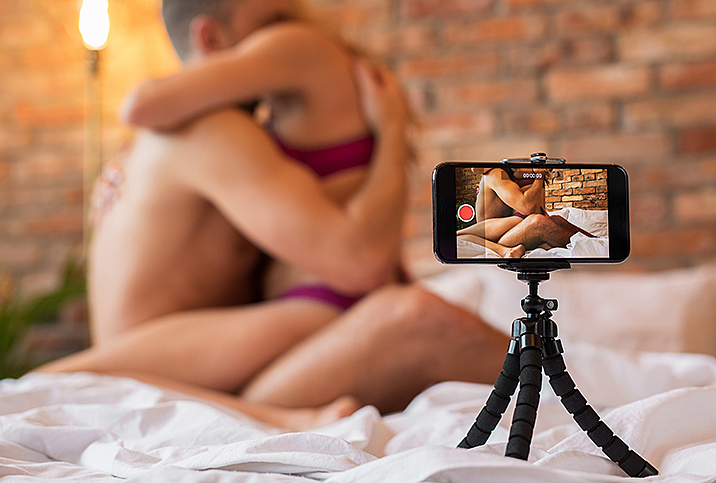Sex in Entertainment: Myths & Misconceptions
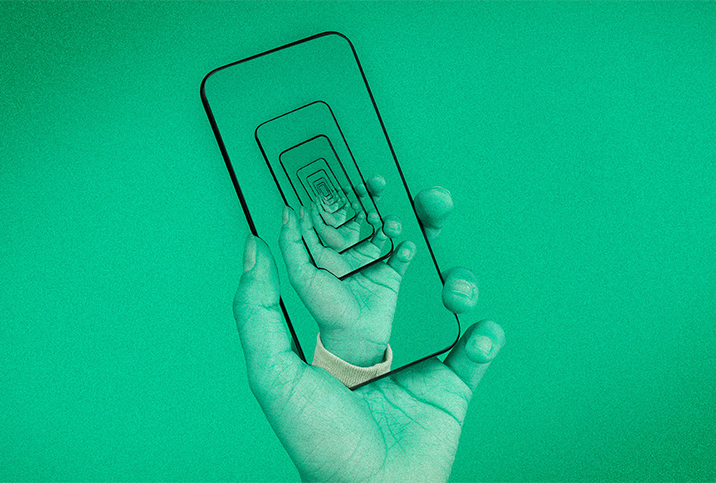
Art reflects life, as the adage goes. But just as often, mass entertainment reflects how people might prefer to think about life. That's no more true than in the representation of sex in popular culture, which for years has had less to do with how people actually copulate than with glamorizing a certain cultural ideal of what sex should be. Movie stars rarely simulate sex or project sexuality accurately to your or—to be honest—their own private sexual lives.
The selling of a heightened kind of sex in pop culture is nothing new and in some ways totally normal, since sex is something most of us engage in, enjoy and fantasize about. But certain pernicious misconceptions and flat-out dishonesties remain that could be harmful. These key myths in entertainment and mass culture surrounding sexuality need to be busted.
Myth: A sexually explicit culture causes teens to engage in dangerous sex practices.
Reality: Conservative and family interest groups have long railed against graphic sexual content in entertainment. The Parents Television Council in 2021 called on HBO's parent company, AT&T, to cancel the network's series "Euphoria," which frankly depicts teens of different sexual identities experimenting in their sexual lives and reckoning with sexual trauma.
The supposed reasoning behind these complaints has often been that showing extreme sex will inspire young viewers to engage in the same. But there is "almost no evidence regarding the impact of most of these media," the 2011 RAND paper Influence of New Media on Adolescent Sexual Health: Evidence and Opportunities summarized. While there's some evidence that exposure to sexual media is associated with adolescents' sexual behavior and attitudes, according to a 2019 meta-analysis in the Journal of Adolescent Health, effects are "small" at best.
Clearly, more needs to be understood here: "The emerging body of research on new media suggests promise for intervention programs targeting sexual health among youth and the possibility that these media are already influencing teens' sexual attitudes and behavior, both positively and negatively," the RAND paper added.
But are American youth really rushing into wild sexual practices at an earlier age because of shows like "Euphoria"? Again, while more rigorous study is needed, it doesn't appear that way. Despite widespread blame assigned to sexually explicit media, "in Europe, where teen birth rates are much lower and contraceptive use is higher than in the U.S., sex and sexuality are an accepted part of media expression," a Sexuality Information and Education Council of the United States report noted in 2000. Considering that, see: the British series "Skins" and the French film "Blue Is the Warmest Color."
Myth: Sex scenes are fun to film.
Reality: Mainstream Hollywood movies and TV shows are not generally in the business of showing how clumsy and messy sex—even great sex!—can be. To get a more universally palatable audience rating alone, sex scenes are cut down to quick, vague montages that emphasize initial disrobing and quickly segue to loud, inauthentic-sounding orgasm noises to let viewers know the deed was done.
Actors have said over and over how uncomfortable even the glamorous scenes are to shoot. "It's just like, this is what you need to do—get on with it," Margot Robbie said of her scenes from "The Wolf of Wall Street," in which she pretends to bed Leonardo DiCaprio. "The sooner you do it, the sooner you can stop doing it." Kristen Stewart called filming screen sex opposite Robert Pattinson in the "Twilight" films "agonizing," adding "it had to be transcendent and otherworldly, inhuman, better sex than you can possibly ever imagine. And we were like, 'How do we live up to that?'" Meanwhile, Evan Peters said of the practical implications of a "cock sock" malfunction on the "American Horror Story" set: "Your balls are hanging out in front of Jessica Lange, and it's like, 'This is not normal. This is a very vulnerable experience.'"
The best sex scenes linger on not just the beauty and eroticism of sex, but its inevitable mundanity. The montage between Julie Christie and Donald Sutherland in "Don't Look Now" is considered transcendent because it focuses on pauses (it was so vivid that many thought it was real). The 2001 Israeli film "Late Marriage" has a sex scene so naturalistic, the naked actors move around the frame as if it's their own bedroom. It's funny and hot. No doubt doing these scenes also comes with stress, but at least they come off as much more honest.
Myth: Hip-hop is the only culture degrading to women.
Reality: One of the most insidious myths about music is that rap is somehow the only (or most prominent) genre worth pointing to for its misogynistic treatment of women and their sexuality. The "Parental Advisory" warning that became ubiquitous on albums in the 1990s (and prevented those of us growing up in the era from getting the CDs we desperately seeked) frequently targeted black artists. Pioneer of the project Tipper Gore suggested that rap would cause "our daughters to think of themselves as 'bitches' to be abused."
But, of course, rock stars like the Rolling Stones' Mick Jagger had already thoroughly debased anonymous women (albeit with different language), as on "Some Girls," to critical acclaim: "Some girls give me children / I never asked them for," Jagger coolly croons in his litany of questionable stereotypes. "Black girls just wanna get fucked all night."
And rock and rap have been far from alone in degradation, as evidenced by the Prodigy's infamously transgressive electronic hit "Smack My Bitch Up." To be sure, even newer artists are susceptible to uncomfortably diminishing women. The late, genre-less Juice WRLD excavated personal demons, but "All Girls Are the Same" is little more than a sneer.
Gore also apparently wasn't clued in to the sweet, loving hip-hop hits that came out even while gangsta rap reigned, like LL Cool J's "Around the Way Girl," which actually mentions the names of his street-slang-talking objects of affection who "ain't scared to do their thing": "Lisa, Angela, Pamela, Renee / I love you, you're from around the way."
That genuine sentiment never left hip-hop. Blockbuster rapper of the moment Travis Scott bares his soul about a difficult relationship on "Coffee Bean" ("Your family told you I'm a bad move / Plus, I'm already a black dude"), though many have instead focused on the rumored famous subject (Kylie Jenner). It's still often black artists who tend to draw moral panic for the sexual nature of their work, from Cardi B and Megan Thee Stallion embracing their freak side on "WAP" to Lil Nas X cheekily riding a stripper pole down to hell to give a lap dance to Satan and (spoiler) kill him and take his devil horns—even when that work has nothing to do with putting down others or their own sexual lives.
Myth: Women want men to aggressively pursue them.
Reality: The history of mass culture is littered with outdated and unfortunate signals about consent and what women want. In 2013, Robin Thicke went to No. 1 on the Billboard Hot 100 with "Blurred Lines," in which he repeatedly addresses a woman who's seemingly not showing interest by telling her, "I know you want it." The song stoked protests, saying it perpetuated rape culture, and by 2019, its featured artist Pharrell Williams bemoaned the "chauvinist culture" that produced the collaboration.
While everyone's desires and fantasies are different—extending to power-based S&M fetishes—Hollywood can be woefully fuzzy here. As Julie Beck noted in The Atlantic, pop culture has frequently flattered male characters who persist in their romantic pursuits—even Lloyd Dobler from "Say Anything," with his handsomely mopey face and blasting boombox—past the point where it might be appreciated. The smash 2019 "Joker" dabbled, albeit halfheartedly, in sympathizing with the mentally ill pre-villain character imagining a romantic relationship with a neighbor that leads him to invade her apartment. Many of these men, if you encountered their aggressive infatuation in real life, would seem, well, creepy.
Movies and TV have recently begun addressing rape and unwanted sexual advances with much more forceful clarity, thanks in part to the #MeToo movement. From "Euphoria" to "I May Destroy You," some of these works are unafraid to confront the complex, nuanced ways people respond to consent issues and sexual assault and harassment.
Myth: Women don't objectify men.
Reality: Norms around male and female nudity on the screen have been rapidly changing, but a quick tour of movies, TV shows and ads of the past 20 years would leave one with the distinct impression that only women take off their clothes to the delight of others, while men's bodies are treated as indifferent or simply funny.
The height of juvenile sex comedy in the 1980s is typified by "Porky's," in which women are constantly undressed while fully clothed men leer at them. The female form is undeniably beautiful, but only now is there major entertainment that not only disrobes men, but embraces women's carnal desire for male hotness. While no one should be reduced to just a physical object, taking a peek is a natural instinct. Just ask Dany from "Game of Thrones," who at one point commands her warrior-lover underling, "Do what you do best. Take off your clothes." He obliges—a gender turn of the tables for the ages.
Myth: Gayness is automatically funny or automatically unfunny.
Reality: It's easy to get riled up now by all the "gay" and "fag" jokes of the past that persisted through major movies, TV shows and music (looking at you, Eminem). It was, to be fair, common cultural language even into the early 2000s.
Except the problem is not at all in the rearview mirror. "The Hangover" (2009) uses those words so loosely, they start to feel like punctuation, in part because the jokes themselves are so lame. Bradley Cooper's Phil deems texting "gay." He refers to the mild-mannered Stu (Ed Helms) as "Dr. Faggot." GLAAD responded with a critique, and "The Hangover" franchise responded with two blockbuster sequels that framed male-on-male desire as innately weird and funny.
The thing is, gay characters and straight people's responses to them can be hilarious. "The Birdcage," which helped many people like me be more comfortable growing up gay, makes mincemeat of stereotypes foisted upon drag-show-producing gay men in Miami. The "Workaholics" dudes are always the butt of the joke when they encounter gay people who don't settle into their preconceptions. I love them, their addiction to marijuana, and the fact that they cluelessly but openly try to figure out the people around them. The sequence in Netflix's "Bad Trip" in which Eric Andre and Lil Rel Howery get their dicks stuck in a finger trap nods to homoeroticism and is riotously funny. And not because there might be a hint of possible gayness between them, but because, wow, how do two grown men get their dicks stuck in a finger trap?












